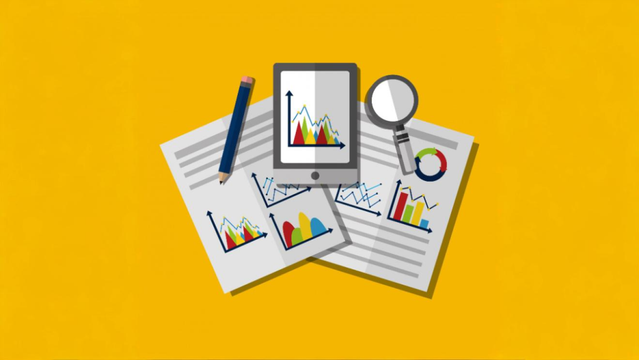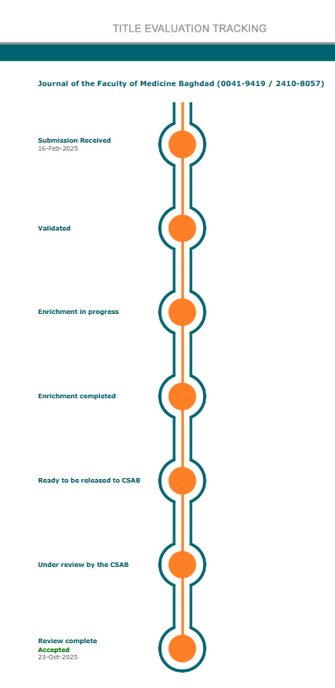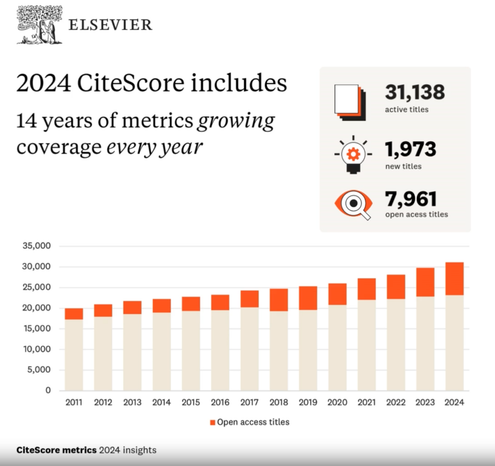Wissenschaftliche Datenbanken im Vergleich – Web of Science, Scopus, Dimensions
Ein kurzer Rückblick auf die Webkonferenz „Wissenschaftliche Datenbanken im Wandel“ (30. September 2025)
Einleitung
In einer zunehmend vernetzten und datengetriebenen Forschungswelt spielen verlässliche Informationen über wissenschaftliche Publikationen eine entscheidende Rolle. Forschende möchten nicht nur relevante Literatur finden, sondern auch nachvollziehen, wie Ideen zitiert, diskutiert und weiterentwickelt werden. Eine zentrale Grundlage dafür bilden Zitationsdatenbanken, die Publikationen und ihre Verbindungen untereinander sichtbar machen.
Besonders bekannt sind fachübergreifende Plattformen wie Web of Science (WoS), Scopus und Dimensions. Sie dienen sowohl als Recherchewerkzeuge für Studierende und Forschende als auch als Datenquellen für Analysen und Evaluationen. Um den Zugang zu diesen Ressourcen zu gewährleisten, lizenzieren Bibliotheken diese Datenbanken und stellen sie ihren Nutzenden zur Verfügung.
Da alle drei Plattformen ähnliche Ziele verfolgen, sich jedoch in Inhalt, Abdeckung und Funktionalität unterscheiden, lohnt sich ein genauerer Blick auf ihre jeweiligen Stärken und Besonderheiten. Genau dieser Aspekt war Thema unserer Webkonferenz: Worin unterscheiden sich die Datenbanken? Welche eignet sich für welche Fragestellung? Und welche Lizenzierung ist für Bibliotheken angesichts knapper Budgets und wachsender Bedeutung offener Alternativen wie OpenAlex oder OpenAIRE sinnvoll?
Dazu haben wir den drei Datenbankenanbietern (WoS, Scopus, und Dimensions) einen Fragenkatalog mit folgenden thematischen Schwerpunkten übermittelt:
- Metadatenqualität und Inhaltsabdeckung
- Open Science & Transparenz
- KI-gestützte Recherche & semantische Suche
Da diese Themen für die wissenschaftliche Community, die diese Datenbanken regelmäßig in Forschung und Lehre nutzt, besonders wichtig sind, haben wir sie zur Grundlage unserer Webkonferenz „Wissenschaftliche Datenbanken im Wandel – Qualität, Offenheit & KI im Fokus“ am 30. September 2025 gemacht. Mehr als 150 Teilnehmende aus Bibliotheken, Forschungseinrichtungen und der Bibliometrie folgten der Veranstaltung online.
Erkenntnisse aus der Webkonferenz
Metadatenqualität und Inhaltsabdeckung
Die Abdeckung wissenschaftlicher Literatur (inkl. Konferenzbeiträge und Grauer Literatur) bleibt ein entscheidendes Kriterium.
- Web of Science setzt auf selektive Auswahl: Konferenzbeiträge werden streng nach über 20 Kriterien geprüft, was zu einer begrenzten, kuratierten Sammlung führt.
- Scopus integriert deutlich mehr Konferenzbände, insbesondere in den Ingenieur- und Naturwissenschaften.
- Dimensions verfolgt einen integrativen Ansatz und schließt neben Journalartikeln auch Preprints, Policy Papers, klinische Studien und Patente ein.
Bei den Autorendaten unterscheiden sich die Ansätze: Während WoS redaktionell eingreift, übernehmen Scopus und Dimensions Metadaten direkt aus Quellen wie Crossref oder PubMed – was die Qualität stärker von den Primärquellen abhängig macht.
Open Science & Transparenz
Die Frage, wie offen und nachvollziehbar Datenbanken arbeiten, wird immer wichtiger.
- Peer Review: Weder WoS noch Scopus kennzeichnen Peer-Review explizit, da alle gelisteten Journale peer-reviewed sein müssen. Dimensions macht Peer-Review-Angaben abhängig von Metadaten der Zulieferquellen.
- Forschungsdaten: WoS bietet über ein Zusatzmodul (Data Citation Index) Verknüpfungen zu Forschungsdaten. Scopus hat diese Funktion eingestellt, während Dimensions Forschungsdaten gleichwertig integriert und mit Publikationen verknüpft.
- Open Access: Alle drei Systeme nutzen Unpaywall, unterscheiden sich jedoch in der Detailtiefe.
Im Vergleich wirkt Dimensions am stärksten auf Open-Science-Praktiken ausgerichtet, da hier verschiedene Output-Arten (Datensätze, Code, Preprints, Grants, Patente, klinische Studien, Policy Papers) konsistent verknüpft werden. Dies eröffnet neue Möglichkeiten für Monitoring und Evaluation.
KI-gestützte Recherche & semantische Suche
Seit dem Aufkommen generativer KI sind auch Datenbanken mit neuen Funktionen aktiv:
- WoS bietet den „Research Assistant“ lizenzpflichtig an,
- Scopus führt „Scopus AI“ ein, ebenfalls lizenzpflichtig,
- Dimensions stellt „Dimensions GPT“ frei zugänglich zur Verfügung.
Darüber hinaus stellen die Systeme auch weitere intelligente Funktionen wie Chat with PDF (bei Dimensions) oder Enriched Cited Reference Map (bei WoS) zur Verfügung. Für schnelle Einstiege in neue Themen können diese Tools hilfreich sein, bleiben jedoch durch unterschiedliche Datenabdeckung (disziplinäre Ausrichtung, Volltext vs. nicht Volltext) in ihrer Aussagekraft begrenzt. Für bibliometrische Analysen sind derzeit noch keine etablierten KI-Werkzeuge integriert.
Fazit und Ausblick
Jahrzehntelang war WoS der (Gold-)Standard für Zitationsanalysen. Erst 2004 wurde mit Scopus eine ernsthafte Alternative etabliert. Dennoch zeigten makrobibliometrische Indikatoren wie Zitationszahlen und Länderränge eine hohe Übereinstimmung zwischen WoS und Scopus[1].
Dimensions als späte Neuerscheinung (circa 2018/2020) bietet deutlich größere Abdeckung: rund 82 Prozent mehr Journale als WoS und 48 Prozent mehr als Scopus – bei hoher Überschneidung mit den etablierten Datenbanken.[2]
Die exklusive Dominanz einer einzelnen Datenbank neigt sich damit dem Ende zu. Parallel gewinnen offene Plattformen wie OpenAlex an Bedeutung. Einige Universitäten prüfen bereits, gänzlich auf proprietäre Systeme zu verzichten und stattdessen auf offene Alternativen zu setzen. Anfang 2024 sorgte beispielsweise die Sorbonne University mit ihrem Verzicht auf WoS für Aufsehen.[3] Fest steht, dass bei begrenzten Budgets und ggf. steigenden Kosten für die Finanzierung von Open-Access-Lizenzmodellen weniger Mittel für klassische Datenbanken verfügbar sein werden.
Die 90-minütige Online-Veranstaltung hat deutlich gemacht, wie zentral der Vergleich wissenschaftlicher Datenbanken für Forschung und Bibliotheken bleibt. Während die etablierten Systeme weiterhin durch ihre bewährte Datenqualität und Stabilität überzeugen, zeichnet sich Dimensions vor allem durch eine breitere Abdeckung, vernetzte Datenstrukturen und innovative Analysefunktionen aus. OpenAlex hingegen verdeutlicht den zunehmenden Einfluss offener und frei zugänglicher Datenquellen in der wissenschaftlichen Informationslandschaft.
Gleichzeitig bleiben viele Fragen offen, die uns auch in Zukunft beschäftigen werden:
- In welchen Szenarien ist eine bestimmte Datenbank die beste Wahl?
- Wann lohnt sich der Blick auf Alternativen – insbesondere auf offene Datenquellen?
- Und wann ist eine kombinierte Strategie aus proprietären und offenen Systemen sinnvoll?
Diese Entwicklungen versprechen spannende Perspektiven für die kommenden Jahre. Ob sich die Landschaft der Zitationsdatenbanken stärker in Richtung Konkurrenz oder Integration entwickelt, bleibt abzuwarten – sicher ist jedoch, dass der Dialog darüber weitergeführt werden sollte. Wir an der TIB werden dazu beitragen, diese Diskussion fortzusetzen und gemeinsam neue Ansätze für den Umgang mit wissenschaftlichen Daten zu erkunden.
[1] https://arxiv.org/abs/0903.5254
[2] https://arxiv.org/abs/2011.00223
[3] https://www.sorbonne-universite.fr/en/news/sorbonne-university-unsubscribes-web-science
#Zitationsdatenbanken #LizenzCCBY40INT #Metadaten #OpenScience #KI #openalex #DimensionsAnalytics #WebOfScience #Scopus





